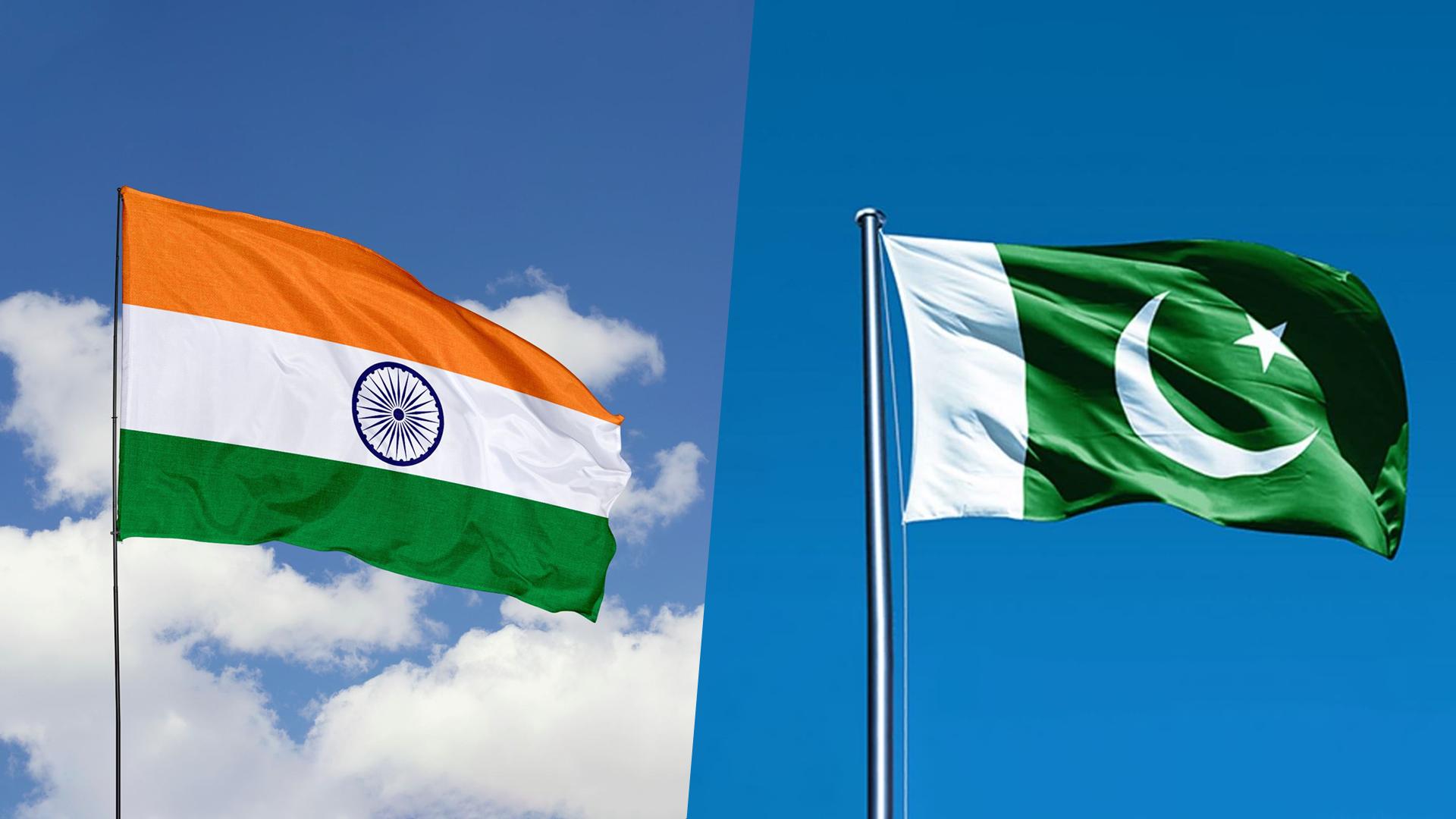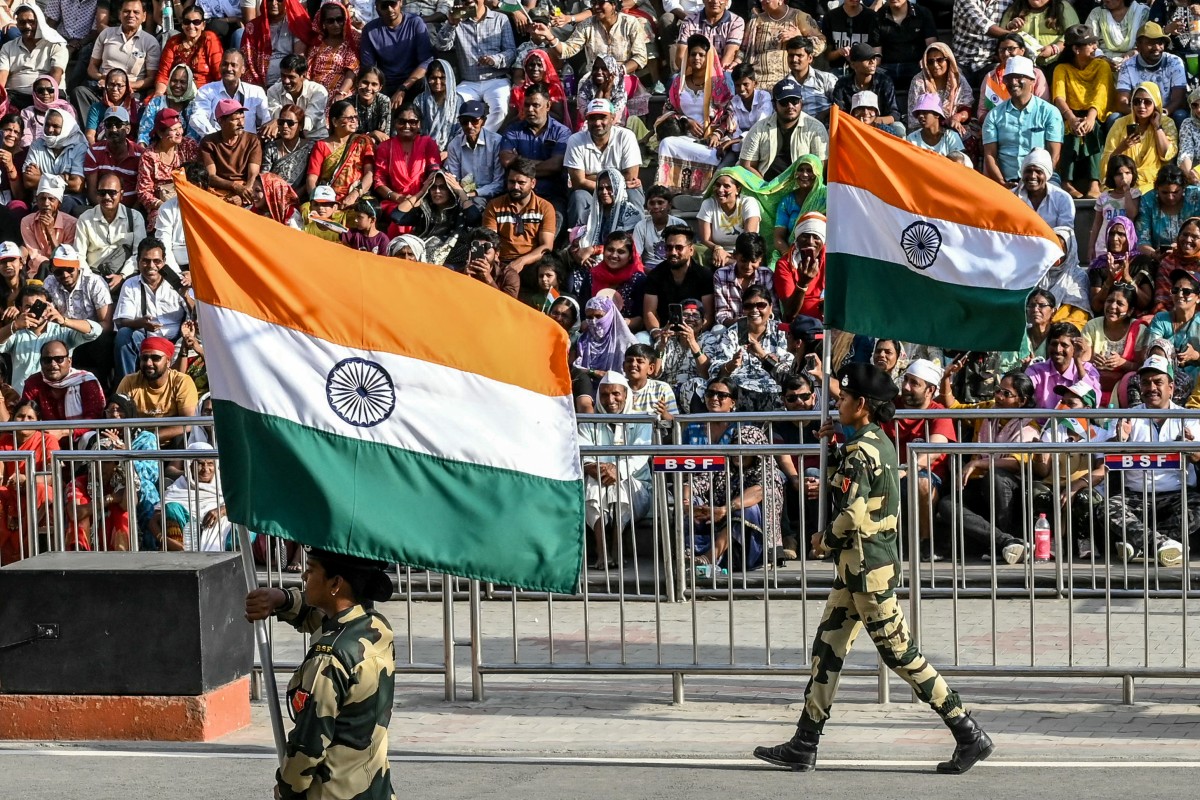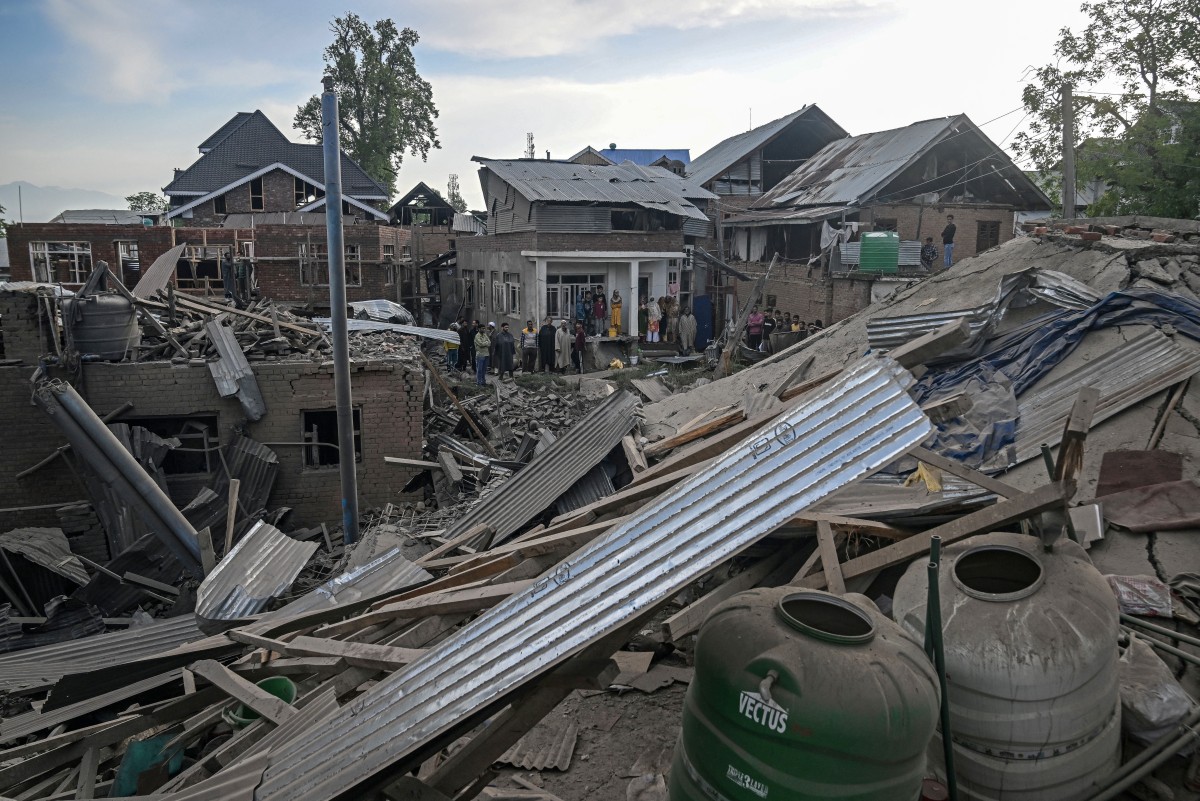
By Agence France-Presse
Indian and Pakistani soldiers exchanged gunfire in disputed Kashmir for a fourth night in a row, New Delhi’s army said on Monday, April 28, citing the latest violence as relations between the rival nuclear-armed powers fray.
There were no reported casualties, and Islamabad did not immediately confirm the gunfire from Pakistan.
India has accused Pakistan of supporting “cross-border terrorism” after gunmen killed 26 people last week, the worst attack on civilians in contested Muslim-majority Kashmir for a quarter of a century.
“During the night of April 27-28… Pakistan Army posts initiated unprovoked small arms fire across the Line of Control,” the Indian army said in a statement, referring to the de facto border in contested Kashmir.
“Indian troops responded swiftly and effectively,” it added.
Pakistan’s army, meanwhile, claimed on Sunday, April 27, that it had killed 54 militants who tried to enter the country through its northwestern border with Afghanistan—suggesting the incursion was orchestrated by New Delhi.
“Such actions by (jihadists), at a time when India is leveling baseless accusations against Pakistan, clearly implies on whose cues (the jihadists are) operating,” the army said in a statement.
Islamabad has denied any role in the Pahalgam attack, calling attempts to link Pakistan to the attack “frivolous” and vowing to respond to Indian action. Speaking to reporters, Pakistan’s information minister, Attaullah Tarar, said there was “no official confirmation” of any clashes at the border with India.
Indian police have issued wanted posters for three suspects in the April 22 attack—two Pakistani men and an Indian—who they say are members of the Pakistan-based Lashkar-e-Taiba group, a UN-designated terrorist organization.
India’s federal home ministry has handed over the attack probe to the National Investigation Agency, which focuses on counter-terrorism.
“The eyewitnesses are being questioned in minute detail to piece together the sequence of events that led to one of the worst terror attacks in Kashmir,” an agency statement read.
Earlier, Pakistan’s Prime Minister Shehbaz Sharif said the country was “open to participating in any neutral, transparent and credible investigation” into the attack.

Indian naval exercises
The Indian military held naval drills on Sunday, April 27—releasing images of warships firing missiles—while the country’s security forces pressed on with their hunt for those behind the April 22 attack at a tourist hotspot in Pahalgam in Kashmir.
India’s navy said that it had carried out exercises to “revalidate and demonstrate readiness of platforms, systems and crew for long-range precision offensive strike,” without detailing where the drills took place.
The Indian Express newspaper quoted a top government source as saying, “There will be military retaliation,” and officials “are discussing the nature of the strike.”
Kashmir has been divided between India and Pakistan since their independence in 1947. Both claim the territory in full but govern separate portions of it.
Rebel groups have waged an insurgency in Indian-controlled Kashmir since 1989, demanding independence or a merger with Pakistan.
India’s Hindu nationalist Prime Minister Narendra Modi on Sunday reiterated his pledge that the Pahalgam victims “will get justice.”
“Terrorists and their patrons want Kashmir to be destroyed again, that is why such a big conspiracy was hatched,” he said in his monthly radio address to the nation.

Tit-for-tat response
On Saturday, April 26, soldiers in Indian-administered Kashmir bombed the family home of one of the Pahalgam suspects.
The house of Farooq Ahmad Tadwa was destroyed by authorities in Kupwara district, one of a series of demolitions targeting houses of alleged militants.
So far nine houses belonging to militants have been bombed since the Pahalgam attack, a police official told AFP on Sunday, April 27, on condition of anonymity.
After the April 22 attack, New Delhi downgraded diplomatic ties, withdrew visas for Pakistanis, suspended a water-sharing treaty, and announced the closure of the main land border crossing with Pakistan.
In response, Islamabad ordered the expulsion of Indian diplomats and military advisers, cancelled visas for Indian nationals, and barred its airspace to Indian airplanes.
The United Nations has urged the archrivals to show “maximum restraint” so that issues can be “resolved peacefully through meaningful mutual engagement.”
Pahalgam marks a dramatic shift in recent Kashmiri rebel attacks, which typically target Indian security forces.
In 2019, a suicide attack killed 41 Indian troops in Kashmir and triggered Indian air strikes inside Pakistan, bringing the countries to the brink of all-out war.
